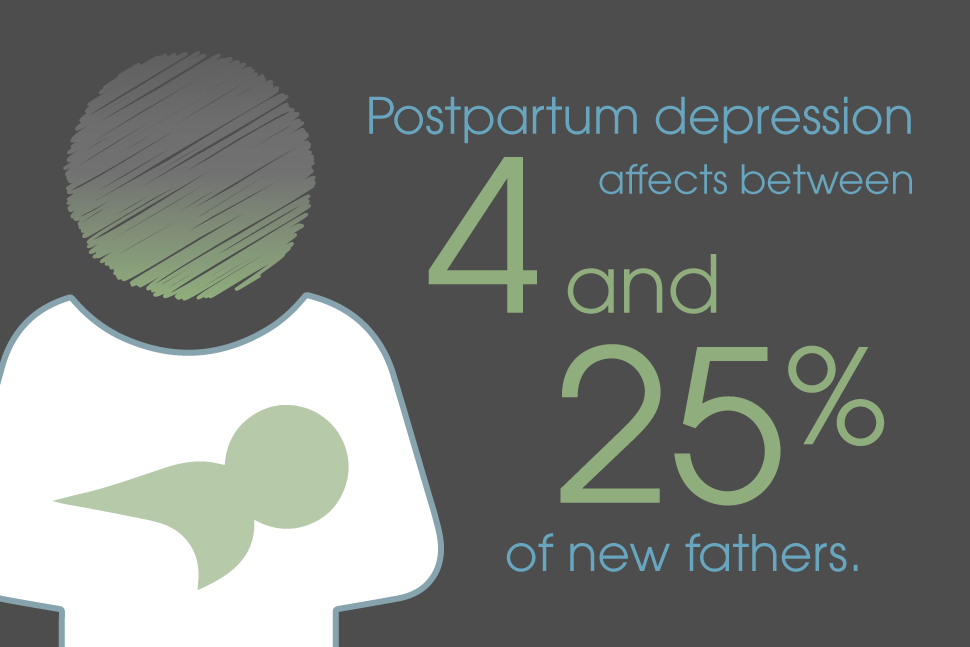
Symptoms of Depression in Men
The symptoms of depression in men are often overlooked or misinterpreted. Although statistically more women than men are diagnosed with depression, many men also develop this mood disorder, but may experience depression differently than women. In men, depression is often expressed in mood swings, irritability, anger, aggression, substance abuse, fatigue, risky behavior, and isolation from others. For many, their depression may remain undiagnosed, leaving them less likely than women to seek support.
Although twice as many women as men are diagnosed with depression, anyone may develop this mood disorder. Men and women often experience depression in different ways, however.
Symptoms of depression in men may include mood swings, anger, and physical symptoms such as insomnia or changes in weight. Often, men and those in their lives do not link these symptoms to depression.
Men are less likely than women to recognize or talk about their depression. That’s why it is especially important for men to know the signs of depression, as well as where they can find support.
When men receive good treatment, they can manage the symptoms of depression and start to feel like themselves again.
Symptoms of Major Depression
Major depression is one of the most commonly diagnosed mental illnesses, with 6.7 percent of all U.S. adults reporting at least one major depressive episode in 2016.
The Diagnostic and Statistical Manual of Mental Disorders (DSM-5) includes official guidelines for diagnosing and categorizing depression. To be diagnosed with depression, a person must experience at least five of these diagnostic criteria for at least two weeks, with at least one symptom being either depressed mood or loss of interest in activities:
- Depressed mood most of the day that causes hopelessness, sadness or emptiness
- Diminished interest in activities that once caused pleasure
- Significant weight loss or gain, or changes in appetite
- Insomnia or excessive sleepiness
- Observable, unintentional and purposeless motions such as fidgeting
- Fatigue or loss of energy
- Feelings of worthlessness or excessive guilt
- Difficulty thinking, concentrating or decision-making
- Recurring thoughts of death and suicide
For a diagnosis of major depression, a person’s symptoms must be severe enough to cause impairment and great distress. Depression is persistent and does not simply go away on its own. With treatment, however, individuals with this mood disorder can feel better.
Depression Symptoms in Men
While men and women share the same diagnostic criteria and symptoms for major depression, they often manifest the signs of depression in markedly different ways. Whereas women with depression may express feelings of sadness or worthlessness, many men tend to become angry or blame others.
Men with depression may also display mood swings, irritability, isolation from others, reckless behavior, decreased sex drive and loss of interest in work, family, or hobbies. Common physical symptoms of depression among men include fatigue, insomnia, substance abuse, and weight loss or gain. In addition, men die by suicide 3.88 times more often than women.
Male Postpartum Depression
Postpartum depression is usually associated with mothers after giving birth, yet this condition can also manifest itself in fathers. Encompassing more than “baby blues,” or the mood swings that often accompany the early, sleepless days of parenthood, postpartum depression is a form of major depression that can affect new dads as well as moms.
Postpartum depression affects between 4 and 25 percent of new fathers. While there are no common diagnostic criteria for male postpartum depression, the probability of a father developing postpartum depression increases when the father’s partner is experiencing postpartum depression.

Co-Occurring Disorders
Men with depression may experience co-occurring disorders, such as substance use. As of the 2014 National Survey on Drug Use and Health, a higher percentage of men than women reported experiencing both a mental health disorder and substance use disorder in the past year.
Depression can also go hand-in-hand with post-traumatic stress disorder (PTSD). People who have not recovered from traumatic events, such as childhood abuse, combat, natural disasters or sexual assault, may be diagnosed with PTSD.
Some of the signs and symptoms of PTSD include:
- Intrusive memories, flashbacks or nightmares
- Avoidance of thoughts, conversations or situations that could trigger memories of the traumatic event
- Mood and cognition symptoms such as despair or loss of interest in activities that once caused pleasure
- Arousal symptoms such as hypervigilance, anger, difficulty sleeping and self-destructive behaviors
Often, trauma survivors with PTSD have issues with trust, closeness, communication and problem-solving. While more common in women than men, PTSD can be debilitating for anyone with this disorder if left untreated.
The signs of depression are important to recognize, as this chronic mental illness will not go away without professional support. Men need to be aware that there may be differences in how they experience depression compared to women and to know when to reach out for help. With focused treatment including medication and therapy, men can both reduce and manage the symptoms of their depression.





